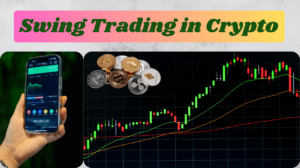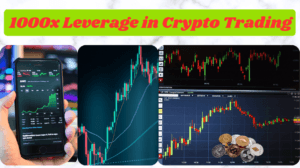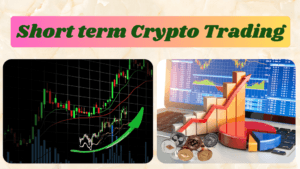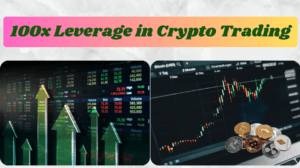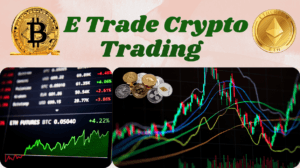Tariff effects Dow Falls 650 Points Down : Tariffs on Canada and Mexico
Introduction
President Donald Trump’s proposed tariffs on Mexico and Canada, the Dow Jones Industrial Average fell by Dow Falls 650 points.
- This forceful motion captures the proverb, “When America sneezes, the world catches a cold.”
- Industries are experiencing the consequences of important trade agreements in jeopardy, which emphasizes the importance of analyzing possible implications on the economy, customers, and companies.
- Investors braced for turbulence as Wall Street started, although many were not ready for the difficulties ahead.
Understanding the Impact of Donald Trump’s Tariffs on the Dow
Donald Trump’s tariff plans have caused market concern that has resulted in a Dow falls 650 points Dow index loss.
- These tariff fears have driven ISM manufacturing, manufacturing surveys, manufacturing report and manufacturing expenses, therefore compressing corporate margins and consequently affecting stock values.
- Rising trade conflicts have caused volatility to rise, endangering world trade links and thus impeding economic development, thereby challenging the future performance of the Dow.
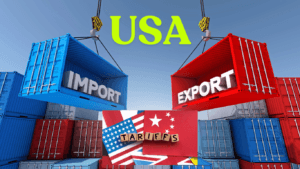
Market Reaction to Tariff Announcements
The Donald Trump Confirms tariff fears Dow falls 650 points drop in the Dow reflects market nervousness Universal tariffs over further taxes on global commerce.
- Such pronouncements are noted by analysts as typically causing more volatility, which forces businesses to review their supply networks.
- Investors stress the stock market’s vulnerability to geopolitical events and trade policy changes as they think these tariffs may increase consumer costs and lower business profitability.
Immediate Impact on the Stock Market
Investors’ worry about the Dow falls 650 points decline in the Dow has resulted in a broad sell-off across most industries.
- Analyses see this drop as evidence of growing economic uncertainty and recession worries, which would drive more volatility and trade volumes.
- Many businesses have lost a lot of market capitalization, which has changed investor portfolios and put retirement savings under danger.
- This circumstance emphasizes how brittle investor confidence in the present state of the economy is.
Historical Context of Tariff Announcements
Announcements of tariffs ( Tariffs on imports) have often affected market behavior, leading to instantaneous swings in stock indexes such as the Dow Jones.
- Economic considerations include trade imbalances and foreign policy influence investor mood; historically, tariff hikes have caused great market drops and recession concerns.
- Examining prior ( Reciprocal tariffs ) tariff increases helps researchers grasp how they could affect domestic production businesses and production costs in the present state of the economy and world commerce.

Analyzing Market Reactions: Why Did the Dow Falls 650 Points?
Rising inflation concerns and expected Federal Reserve interest rate increases, which have rocked market confidence, account for the Dow falls 650 points slump in the Dow.
- Disappointing performance of big companies, particularly in technology, set off a sell-off.
- While lower-than-expected employment growth raised questions about the state of the economy, which led investors to pull out from the market, geopolitical tensions and global supply chain interruptions further exacerbated the unstable scenario.
Understanding the Dow’s Decline
The Dow’s latest drop of Dow falls 650 points emphasizes the state of the present economy under impact of inflation worries and possible interest rate increases.
- This declining tendency is caused in part by changes in market mood and worries about corporate profitability and economic growth.
- Technical elements like profit-taking and overbought circumstances can aggravate large index falls further.
- Global events such geopolitical concerns and financial crises also greatly affect investor behavior, which causes large reductions.
Important Elements Driving the Decline
Rising rates have made borrowing more expensive, which has reduced consumer expenditure and investment.
- Concerns about continuous inflation and market instability have driven investors to sell equities to help offset losses.
- While depressing corporate earnings releases cause concerns about future profitability, which adds to market volatility, geopolitical tensions and trade conflicts further erode investor confidence.
Comparative Analysis with Previous Market Crashes
The recent Dow falls 650 points decline in the Dow draws attention to past market collapses characterized by investor fear and rapid sell-off.
- Such decreases, which are driven by economic uncertainty and poor consumer confidence, frequently indicate extended volatility as shown during the financial crisis of 2008.
- Policymakers’ response will be vital in deciding whether this recession results in a milder downturn or a more severe one reminiscent of prior upheavals.

Historical Context of U.S. Tariff Policies
Beginning with the Tariff Act of 1789, the United States has a convoluted history of utilizing taxes for economic protectionism.
- Tariffs shielded growing businesses in the 19th century and spurred arguments on free trade against protectionism.
- Restricting foreign commerce, the Smoot- Hawley Tariff of 1930 represented a climax in this strategy and exacerbated the Great Depression.
- With successive administrations concentrating on certain nations to assist the American economy and preserve home employment, tariff policies have changed today to address globalization and trade imbalances.
Examining Past Tariff Events
Often turning into trade wars, tariff conflicts have a major influence on world markets.
- Increasing import taxes and thereby restricting commerce, the Smoot – Hawley Tariff of 1930 intensified the Great Depression.
- More lately, U.S.-China tensions have resulted in tariffs on items valued at billions of dollars, therefore hurting both countries.
- These incidents show how tariffs could cause retaliatory behavior, therefore disrupting trade ties and generating uncertainty about world economy.
- Along with diversifying markets to lower dependency on single trading partners, giving negotiation and diplomacy top priority helps to minimize long-term damage.
Sentiment and Behavior of Investors
Recent market volatility has affected investor mood, which makes traders more cautious.
- Behavioral finance emphasizes how emotional reactions such as panic selling and fear—may aggravate drops, as seen by the 650 point Dow falls.
- As a result, a tendency of risk aversion is evident as many investors are moving to safer assets.
- This scenario may also force people to rethink their long-term investing objectives and modify their plans more sensibly depending on market developments and economic conditions.
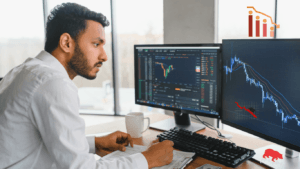
Psychological Elements Affecting Investor Responses
Particularly in volatile periods like the recent Dow falls 650 points decline in the Dow, investor emotions greatly affects market behavior.
- While confirmation bias may encourage some investors to overlook unfavorable news and hang onto their holdings, fear can lead to panic selling and exacerbate market declines.
- Loss aversion increases sensitivity to losses over possible profits; herd behavior encourages investors to follow the herd, hence amplifying drops as they respond to current mood rather than basing decisions on facts.
Strategies Investors Might Employ in Volatile Markets
Investors are developing plans to guard their assets in reaction to market volatility.
- Distributing exposure and lessening the effect of the drop in any one asset, diversifying among asset classes helps lower risks.
- Automatically selling assets at defined pricing levels to control losses, stop-loss orders offer a safety net. Many also use dollar-cost averaging, in which case set sums are routinely invested to help to level purchasing costs.
- Hedging with options or other instruments also lets one hedge against downturns while yet allowing possible profits, thereby balancing unstable markets.
Worldwide Financial Consequences
The latest Dow falls 650 points, indicating market concern about economic stability and maybe lower consumer spending resulting from this.
- This autumn affects home markets as well as causes general volatility and sell-offs worldwide. To boost development and rebuild investor confidence, central banks might have to review their policies and change interest rates.
- Changing stock prices might also influence overseas investments and currency values, further complicating the world economic scene.
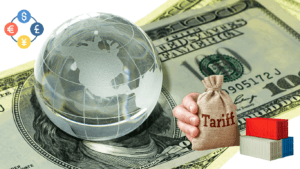
How U.S. Tariffs Affect International Relations
Often leading to retaliatory actions and trade wars, U.S. tariffs can sour diplomatic ties with trading partners.
- These disputes increase market uncertainty and throw off world supply networks, which forces businesses to change their plans.
- As companies try to lower risks from erratic tariffs, this might have a detrimental impact on foreign investment flows.
- Furthermore, the increasing dependence on tariffs points to a turn towards protectionism, therefore compromising multilateral trade agreements and cooperative economic institutions.
Implications for North American Economies
The recent Dow falls 650 points decline in the Dow indicates growing investor anxiety that might impede corporate investment all throughout North America.
- This volatility of the market might erode consumer confidence, therefore influencing regional economic development and expenditure.
- Central banks may so rethink their monetary policies in reaction, hence altering lending and interest rates.
- Companies may also thoroughly examine company profitability, which would lead to layoffs and less employment as they get ready for a more austere economic climate.
FREQUENTLY ASKED QUESTIONS :
How would these tariffs affect US, Mexico, and Canada’s trade relations?
Tariffs imposed by the United States might cause Mexico and Canada to retaliate, therefore souring economic ties among the three countries.
- Higher tariffs might throw off supply networks, therefore driving more consumer and company expenses.
- This scenario might force ( American businesses ) the United States to look for other trading partners, so erasing its links to its North American neighbors and encouraging a turn towards protectionism, so endangering the free trade values set under NAFTA and the USMCA.
How do most investors view fresh trade deals?
New trade agreements elicit rather different responses from investors.
- Some are wary about employment losses and interruptions to home businesses, while others are hopeful about economic development and market prospects.
- As investors modify their portfolios, this conflicting view might cause market volatility.
- Long-term investors, on the other hand, concentrate on strategic benefits and see access to new markets and better supply (grocery chain) retail chain efficiency as means of higher profitability and expansion.
What role does political stability play in shaping investor responses to trade policies?
As it builds trust and motivates investment, political stability is absolutely essential for determining how investors react to trade policy.
- A stable political environment helps investors to see trade policies as part of a predictable corporate environment.
- On the other hand, political unrest generates uncertainty and discouragement of investment resulting from policy reversals.
- Stable countries draw foreign direct investment, therefore strengthening their respective trade policy and economy.
- Positive economic development and better trade ties depend on a stable political climate ultimately.
How do trade policies impact investor confidence?
Stability of markets and investor confidence are strongly influenced by trade policy.
- While limited measures might generate mistrust because of worries over tariffs and trade restrictions, open market policies improve attitude by lowering uncertainty.
- Clear trade rules inspire trust by making stakeholders feel safe, therefore fostering foreign direct investment (FDI).
- But political unrest in trade discussions can cause volatility that forces investors to rethink their plans.
- Trade laws define the FDI scene; good rules draw multinational companies while barriers discourage investment.
- In the end, consistent trade policies help the host nation to prosper economically and encourage constant FDI inflows.
In what ways can tariffs affect stock market performance?
Often raising manufacturing industry costs for businesses, tariffs squeeze profit margins and weaken stock prices.
- Investors responding to possible trade policy changes causes market volatility from this expectation.
- While some businesses would gain from less overseas competition, others might suffer from growing expenses and declining customer demand.
- All things considered, the economic uncertainty generated by tariffs undermines consumer confidence, which lowers spending and influences stock market patterns even more.
Conclusion
Driven by Donald Trump’s tariffs on Mexico and Canadian tariffs, the recent Dow falls 650 points drop in the Dow emphasizes the frailty of market confidence among economic uncertainty.
- Rising expenses and possible declines in consumer spending worry investors, which drives careful trading. According to historical patterns, such levies might generate geopolitical conflicts and instability, therefore disrupting world commerce.
- Negotiating and diplomacy will be vital when these policies take effect to minimize negative effects on economic development, therefore affecting the Dow and the whole economy.
- To negotiate this volatility and keep resilience in an erratic market, investors must be proactive in their plans.

